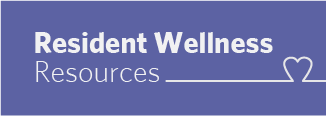The following committees require resident representation. Most resident representatives on these internal committees are assumed by current Lead Residents or R1 Representatives.
Postgraduate Education Committee (PGEC)
- One-to-two reps from each region (Lower Mainland, Fraser Valley, Northern Rural, and Vancouver Island)
- PGEC is the major committee that assists the Program Director in assuring the entire UBC postgraduate residency experience quality. Program curriculum, assessment, and scholar expectations are defined at this level. Program-wide policies are approved through this committee. All of the sub-committees, site directors, and portfolio directors report regularly to this committee.
- One face-to-face and two virtual ( full day) meetings in a year.
Program Competency Committee (PCC)
- One R3 rep
- Address issues surrounding residents who are in difficulty. Provides an opportunity for Peer Support for Site Directors dealing with complex resident challenges. Committee meets in confidence though trends are reported to PGEC
- Monthly videoconference meetings
Assessment/Evaluation Committee
- Work includes development and quality improvement/assurance of assessment processes and expectations in the Postgraduate Program. Exam prep, FieldNotes and portfolio development, faculty, and educational environment evaluation processes are discussed. Resident’s role includes acting as the first point of communication from the committee to the resident body and vice-versa, possible involvement in working groups
- Monthly videoconferences and face-to-face full-day retreats twice/year. Travel and accommodation paid for by the program for one-to-two rep(s) to attend
Curriculum Committee
- Working on delivery and implementation of revision of curriculum objectives. The Resident’s role includes being the representative from the committee to the resident body and vice versa
- Regular videoconferences (every month or so) and face-to-face full-day retreat twice/year. Travel and accommodation paid for by the program for one-to-two rep(s) to attend (consideration for urban and rural representation)
Scholarship Committee
- Discuss issues relating to the program scholar expectations, activities, and deliverables, including research, EBM, and information management teaching at the site level. The resident rep will participate in working groups/subcommittees to address emerging issues as needed
- Two face-to-face retreats/year and videoconferences (up to two)
Resident Resilience Subcommittee
- Provide and develop tools and resources that promote resilience and wellness for residents
- Meeting three to four times per year via face-to-face or videoconference
Behavioural Medicine/Resident Wellness Committee
- Work on issues related to strategic planning, development, and delivery of Behavioral Medicine
- Quarterly videoconferences and face-to-face meetings twice/year (as required)
Faculty Development Committee
- Faculty Development will recruit their own resident representatives
- Plans and implements best practices in Medical Education to engage and support preceptors, teachers, and educational leaders. Works to create a community of practice for those interested in the enhancement of teaching and learning.
- Some videoconferences and face-to-face meetings twice/year
Resident Selection Committee
- Two representatives from each year (R1 & R2)
- Review, evaluate and make a recommendation regarding CaRMS selection process
- Meetings are held approximately once a month
Program Evaluation Committee
- Develop and monitor a framework for evaluation of all components of the Postgraduate Program
- Monthly videoconference meetings
IMG Interest Group
- One-to-two IMG residents
- Represent IMG resident issues and communicate with IMG residents about initiatives to support them
- Regular videoconference meetings (every month or so)
Resident Representatives List
Roles & Responsibilities of Resident Representatives
The purpose of having resident representatives is to ensure an open line of communication between the administration and residents. The administration views this as a vital link in program development and improvement, and in turn, it is invaluable for residents to be involved in this process.
As a resident representative, you will be called upon to speak on behalf of fellow residents during meetings. The committees typically request input from and discussion by all members (especially residents) and operate by consensus. Therefore, it is important to be informed and communicate with the residents, other site leads, and the R1 representatives.
When you are accepted as a committee member:
You will be introduced to the the committee and will be provided with pertinent information (meeting dates/times, minutes, members, updated terms of reference).
It is important to be accountable and ensure that your comments and votes reflect the majority opinion of the residents across all sites.

